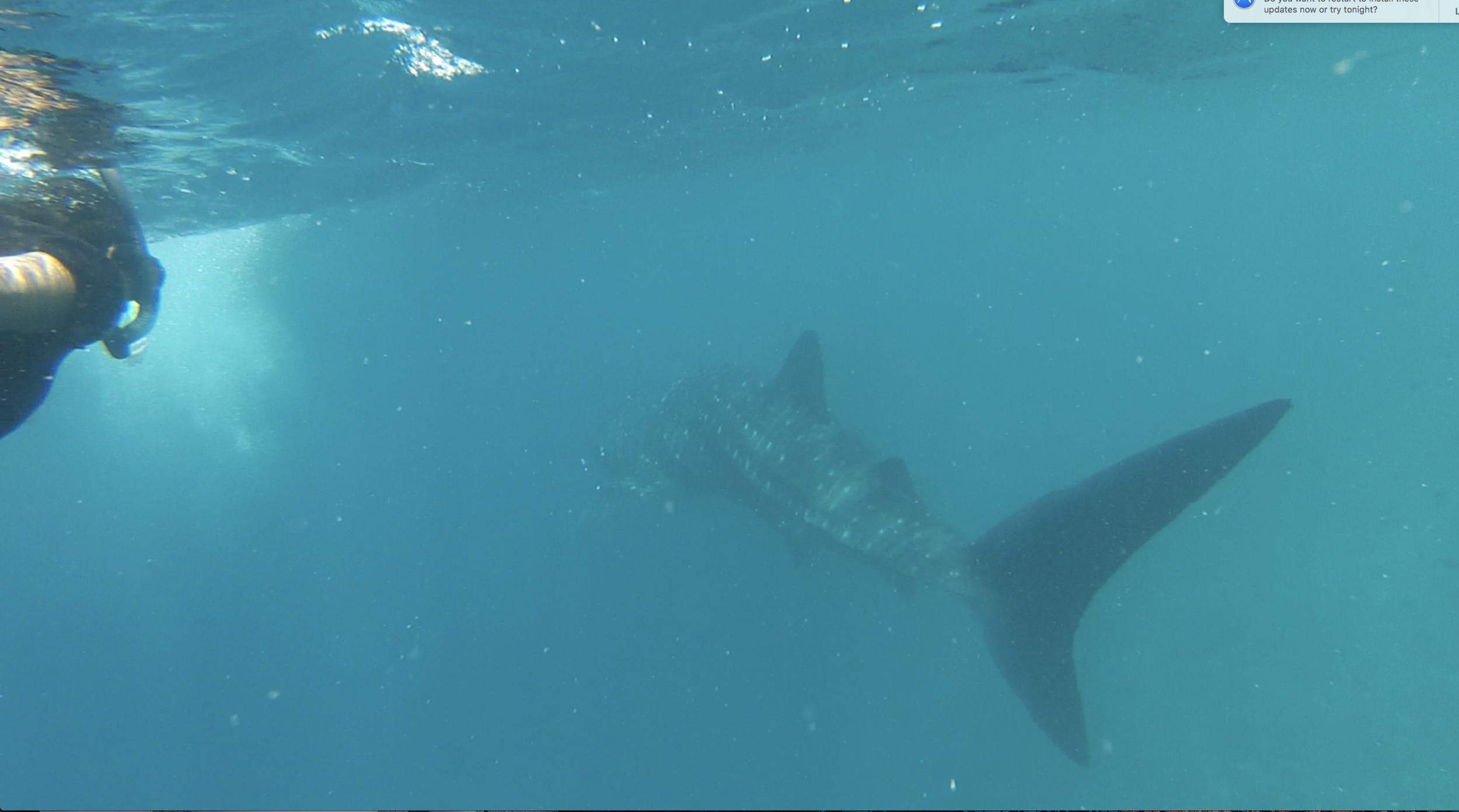Interdisciplinary Cohort Explores Radical Alternatives through Field Work and Public Engagement.
What better way to spend an ecological summer break than investigating the effects of climate change in the highly impacted Maldives? An interdisciplinary team from the Architectural Ecologies Lab did just that. This past July, three California College of the Arts faculty from the Architectural Ecologies Lab joined two scientists for a two-week field trip to the Maldives, an island nation in the Indian Ocean of 1,200 small coral islands, 200 of which are are human-inhabited.
The Maldives face immediate and urgent impacts of sea-level rise caused by climate change, including disastrous, recent coral bleaching due to ocean warming. CCA faculty Margaret Ikeda, Evan Jones, and Leslie Carol Roberts joined Dr. John Oliver of the Benthic Lab at Moss Landing Marine Laboratories and the biologist Jo Guerrero on a visit to numerous islands, conducting field work and sharing research and design work by California College of the Arts faculty and students interrogating ecological changes and how we might mediate the effects through varied approaches.
Professors Ikeda and Jones lead the Buoyant Ecologies Maldives integrated architecture studio, which began work in 2017 to develop speculative proposals for floating communities in the Maldives. Professor Roberts co-directs the Ecopoesis Project, an interdisciplinary initiative of the AEL and CCA’s MFA in Writing Program, exploring how we use language to grasp and process life, human and non-human, in the sixth extinction.
The team’s research brief included field work and interviews to better map and understand the complex island culture, politics, economies, infrastructure, and marine ecology. The team left with optimism about future collaborations and strategies for partnerships this fall semester and beyond.
Highlights:
An evening lecture and panel discussion at The Maldives National University (MNU) with more than 150 attendees, including former president and climate activist President Mohamed Nasheed; Dr. Mohamed Latheef, the Chancellor of MNU, and Dr. Shazla Mohamed, Dean of Engineering, Science and Technology (home of the architecture department).
Professors Ikeda and Jones were invited guest reviewers at MNU for the final studio presentation for a fourth-year undergraduate studio, which explored the planning and development of a community over water.
A two-day exhibition in Male’ (the capital city) of Buoyant Ecologies Maldives studio work, followed the talks. This work had previously been exhibited at the Hubbell Gallery at CCA in February, 2019 (curated by CCA faculty member Michael Bogan) and at the Benthic Lab Open House in April, 2019. This event was an opportunity to meet with the public and discuss the studio projects on exhibit. Many people attended, including representatives from government agencies who were curious about both the adaptive design approaches and the incorporation of sustainable systems. These initial meetings have cultivated relationships with a new constituency who have become an essential resource for this fall’s Buoyant Ecologies Maldives studio, currently underway at CCA.
Professor Roberts led a series of Ecopoesis dialogues with Maldivian students and visitors to the exhibition, interviewing them and discussing local perspectives on how climate change impacts economic, social, and ecological dimensions of daily life.
The island of Dhangethi, the site of the Buoyant Ecologies Maldives studio, was the main focal point of the trip. After a three-hour speed boat trip in heavy monsoon seas, the team spent three days meeting with island residents, learning about the local infrastructure, understanding the island’s hydrology, and recording thoughts on climate. Most of their time was spent on the water, including snorkelling with the majestic whale shark, observing the marine eco-tourism industry, and talking to local divers. The biologists, both divers, explored an adjacent marine sanctuary, and documented the shallow and deep lagoons that skirt the island of Dhangethi. Dhangethi, with a population of 500, is looking to grow its tourist economy. The implications of a heavier human footprint on water use and effluent were explored and discussed with local leaders.
To better understand the Maldives economy, which is based on high-end, foreign-funded resorts and tourism, the team visited the Conrad (Hilton) Resort, home to a famed underwater restaurant and representative of the industry. The Conrad biologists explained the hotel’s coral restoration scheme and took the AEL into the waters for a closer view.. The next stop was the Banyan Tree Resort, a global hotel group based in Singapore. Banyan Tree has a reputation for serious commitment to marine biology research. Their resident marine biologist, Steve Newman, has more than two decades of dive work and research around coral and marine life in the Maldives. In addition, he is on a government panel that looks at how to better manage eco-tourism across the country. Connected to a research university in the UK, the Banyan Tree routinely hosts PhD students conducting research about the local ecologies. The hotel is also one of the only marine biology labs in the country. The AEL team saw documented extensive coral bleaching on this warmer inner island atoll and observed how sharks and other reef species were adapting. Oliver continues discussions with the biologist at Banyan Tree lab about possible research collaborations in the coming years.
Isha Fathmath, a 2018 Buoyant Ecologies Maldives student, 2019 CCA M.Arch graduate, and principal of Doric MV architecture based in the capital Male’ with local partner Layana Mohamed, coordinated all the public events and was invaluable to navigating the islands from a local perspective.
There is more to come with both ECOPOESIS and the Buoyant Ecologies team. Roberts and her CCA ECOPOESIS colleague Christopher Falliers are teaching a semester-long graduate seminar ECOPOESIS. This interdisciplinary course looks at embodied messaging around climate change, engaging in form-making and language to articulate climate change and the feelings of the sixth extinction. The Buoyant Ecologies team is incorporating the feedback of all their new partners into a third design studio, titled “A Blueprint for Resilience,” and has been working remotely with an MNU architecture studio sharing ideas around innovative technologies, cultural traditions and ecological adaptations.
























